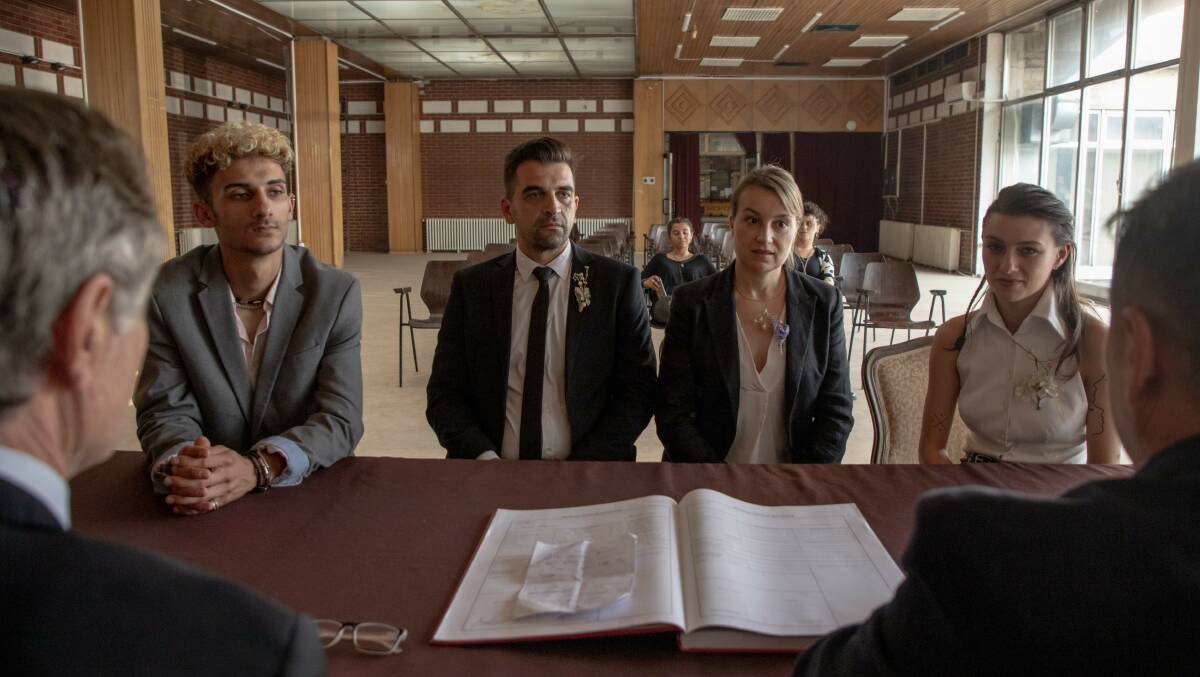Housekeeping for Beginners (MA15. 107 minutes)
5 stars
Melbourne filmmaker Goran Stolevski moved with his family from Macedonia while in primary school and now that he's one of Australia's most prolific, and promising, young filmmakers his birth country remains as important to him as this one.
In 2022 he made a European fairytale, a rather grim one, in You Won't Be Alone, where Noomi Rapace among others played versions of a witch living amongst a medieval Macedonian village.
Just last year he gave us the gay romance Of An Age, informed by the migrant experience.

With Housekeeping for Beginners, Stolevski films in Skopje, North Macedonia a story informed by his migrant experience in Australia, but empathetically exploring a group of people looking for a sense of home.
Dita (Anamaria Marinca) is a social worker who keeps her private life private. It's probably for the best because home is a bit of well-intentioned chaos as she shares her inherited suburban home with her lover Suada (Alina Serban) and Suada's two daughters Vanessa (Mia Mustafa) and Mia (Dzada Selim).
There's also a polyamorous trio of teenage girls boarding upstairs - played by Ajse Useini, Rozafa Celaj, and Sara Klimoska - and Dita's lifelong gay friend Toni (Vladimir Tintor) lives there without contributing to the bills, a situation Dita seems resigned to.
Toni has also dragged home a man half his age, Ali (Samson Salim), who doesn't look like he's leaving any time soon.
The chaos at home is starting to find a groove, with Ali chipping in on babysitting young Mia and picking her up from school while the teenage trio and Ali provides Vanessa, permanently in the pissed-off-at-life stage of teenagedom, with some peer-aged social interaction.
But Suada has terminal cancer and begs Dita to take the two girls on as her own daughters. Before she knows it Dita is adoptive mother, roping Toni into a bit of legal subterfuge with fake birth certificates to help keep the police and child services from taking the kids away.
This film is going to be on a bunch of critics' end-of-year best lists, mine included.
Stolevski asks us to think about the meaning of family and of belonging, in a way that would get him banned by certain councillors serving the Western Sydney suburbs. He's looking at the found-family model and some of the many challenges that bind people together whether through need, through the absence of other choices, through a want of place and protection, and of course through love.
He wrote, directed and edited the film, and what a talent because each is done with such consideration.
Stolevski's screenplay lurches from drama to drama you would expect in a large house filled with a collective thrown together by the social conditions of contemporary Europe.
A lot happens, much of it within the walls of Dita's home, as this collective of people don't have the financial means or citizenship status to be open - about their existence as much as about their sexual identities.
I feel there's also a sense of "what if" in Stolevski's pursuit of this subject, and perhaps some survivor's guilt in having been moved out by his family and able have his teen experience as a gay youth play out in socially safer Melbourne, as he unpacked in Of An Age.
He films in an intimate, and sometimes claustrophobic way, placing his camera just behind his characters so we're seeing the room, the world, from their perspective.
Having gone to high school is Queanbeyan I thought I was competent in the lexicon of Macedonian swear words, but I learned a dictionary more watching this film. You feel let into a world removed, one that might be taking part in a beautiful part of the world but where the class divide is a chasm.

